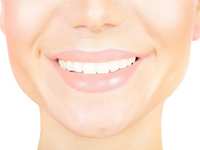- Categories :
- More
Baby Teeth Matter: Why Cavity Prevention Starts Early

The giggles of a toddler are some of the sweetest sounds a parent can hear, until they’re interrupted by a painful cry. A small wince while biting into a favorite snack or an unexpected complaint about a sore tooth can be the first sign that something isn’t right. Many parents believe baby teeth aren’t that important since they eventually fall out, but the truth is, they set the stage for a child’s lifelong dental health. Just like a sturdy bridge needs strong support, a healthy adult smile depends on well-cared-for baby teeth. That’s why understanding toddler cavity prevention and establishing good oral hygiene habits early is essential for keeping your little one’s smile bright and pain-free.
As a pediatric dentist at Growing Great Grins in The Woodlands, I’ve seen far too many young children suffer from cavities, sometimes as early as their first birthday. One case that stands out was a three-year-old whose parents were shocked when we found multiple cavities during their first dental visit. The truth is that baby teeth are critical to a child’s overall health and development, and early cavities can lead to serious long-term issues. Establishing a kids’ dental hygiene routine, focusing on toddler cavity prevention, and following baby teeth care tips can help ensure a lifetime of healthy smiles.
Why Baby Teeth Are More Important Than You Think
One of the most common misconceptions I hear is that baby teeth don’t matter because they eventually fall out. However, baby teeth serve several crucial roles:
- Speech development: Baby teeth are essential for helping children form clear sounds and words, as they support the tongue and lips in articulation. Without them, speech delays or difficulties may arise, impacting communication skills.
- Chewing and nutrition: Baby teeth allow toddlers to chew food properly, ensuring they can break down nutrients essential for growth and development. When cavities or missing teeth interfere, it can limit their ability to enjoy a balanced diet, affecting their overall health and oral hygiene.
- Guiding adult teeth: Baby teeth hold space for permanent teeth, guiding them into the correct position for a well-aligned bite. Losing them too soon due to decay can cause shifting, leading to misalignment and the need for orthodontic treatment.
- Confidence and social development: A healthy smile helps children feel confident, encouraging positive social interactions and self-esteem. Preventing cavities in toddlers ensures they develop good oral habits early, reducing the likelihood of anxiety or embarrassment due to dental issues.
Losing baby teeth too early due to decay can lead to misalignment of permanent teeth, speech issues, and even an increased risk of cavities in adult teeth. That’s why toddler cavity prevention is essential from the start.
How Diet Plays a Role in Toddler Cavity Prevention
Many parents are unaware of how much diet affects oral health. While we all know that candy and soda can cause cavities, some surprising culprits include “healthy” foods like fruit juices, gummy vitamins, and dried fruit.
Hidden Sugars to Watch Out For
Certain foods may seem nutritious but can actually coat the teeth in sugar and lead to decay, making it difficult to maintain a proper kids’ dental hygiene routine. Here are some common culprits:
- Fruit juices: Even 100% juice contains natural sugars that stick to teeth and contribute to decay. Limiting juice consumption and opting for water can significantly reduce cavity risk.
- Flavored yogurts: Many yogurts marketed to children contain added sugars that can linger on teeth and promote bacterial growth. Choosing plain yogurt with fresh fruit is a healthier alternative.
- Gummy vitamins: Though essential for growth, gummy vitamins can get stuck in tiny crevices of teeth, acting as a constant sugar source for harmful bacteria. Opting for chewable or liquid vitamins can help minimize this risk.
- Dried fruit (raisins, dates, fruit snacks): While they seem like a healthy snack, dried fruits are sticky and high in natural sugars, making them just as harmful as candy for teeth.
- Crackers and chips: These starch-heavy snacks break down into sugar-like particles and stick to teeth, increasing the likelihood of cavities.
Healthy Eating Habits for Stronger Teeth
The best foods for toddler cavity prevention include nutrient-dense options that promote oral health while reducing sugar exposure:
- Dairy products: Cheese, yogurt, and milk provide calcium and phosphates that help remineralize teeth, strengthening enamel and reducing decay risk.
- Crunchy fruits and veggies: Apples, carrots, and celery naturally help clean teeth by stimulating saliva production, which washes away food particles and bacteria.
- Water instead of juice: Water helps flush out lingering food particles and neutralize acids in the mouth, keeping teeth cleaner and healthier.
By reducing sugar intake and focusing on tooth-friendly foods, parents can give their children a great start in maintaining healthy teeth for children throughout childhood.
Age-appropriate Brushing Techniques for Toddlers
One of the biggest challenges parents face is getting their toddler to cooperate with brushing. Here are some baby teeth care tips to make brushing more effective and fun:
When to Start Brushing
- Start as soon as the first tooth appears (usually around 6 months old).
- Use a soft-bristled toothbrush with a rice-sized amount of fluoride toothpaste.
- By age two to three, introduce a pea-sized amount of toothpaste.
Brushing Techniques Based on Age
- Ages 0-2: Parents should gently brush baby teeth twice a day.
- Ages 2-4: Allow toddlers to hold the brush while parents do the actual brushing.
- Ages 4-6: Encourage kids to brush on their own, but supervise to ensure thorough cleaning.
Brushing should last at least two minutes, and parents should help or supervise until children demonstrate they can brush properly on their own.
Fluoride Facts Every Parent Should Know
I often hear concerns from parents asking, “Is fluoride safe for my child?” The short answer is yes, in the right amounts. Fluoride is one of the best tools for preventing cavities in toddlers, as it strengthens enamel and makes teeth more resistant to decay.
How Fluoride Helps
- Strengthens enamel: Prevents cavities by making teeth more resistant to acid attacks.
- Reverses early decay: Can help remineralize areas where cavities are just beginning to form.
- Professional fluoride treatments: These can be applied at the dentist’s office for extra protection.
Using fluoride toothpaste in appropriate amounts and getting regular professional fluoride treatments can significantly reduce the risk of cavities in young children.
The Most Common Causes of Cavities in Toddlers
Some parents wonder why their child has cavities even when they brush every day. The truth is, brushing alone isn’t always enough. Here are some common causes of toddler cavities:
1. Baby Bottle Tooth Decay
When a child falls asleep with a bottle of milk, juice, or formula, sugars from the liquid coat their teeth, creating a breeding ground for harmful bacteria. Overnight, these sugars break down into acids that erode the enamel, leading to early childhood cavities. The best way to prevent this is by offering only water in bottles before bedtime and ensuring a proper kids’ dental hygiene routine during the day.
2. Frequent Snacking
Snacking multiple times throughout the day, especially on starchy or sugary foods, keeps the teeth in constant exposure to sugars and acids. This increases the risk of cavities because the mouth doesn’t get enough time to neutralize harmful bacteria. Limiting snacks and choosing teeth-friendly options such as cheese, nuts, and raw vegetables helps in toddler cavity prevention and supports healthy teeth for children.
3. Poor Brushing Routines
Many toddlers resist brushing, making it easy to miss crucial areas where plaque and bacteria accumulate. Without consistent and proper brushing, cavities can develop even in young children. Establishing a structured kids’ dental hygiene routine, using fluoride toothpaste, and ensuring that parents assist or supervise brushing until children develop proper technique can significantly reduce cavity risk.
Preventive Dental Treatments That Make a Difference
Preventing cavities isn’t just about brushing and diet, routine dental visits play a crucial role too. At Growing Great Grins, we offer several preventive treatments to help protect toddler teeth:
- Fluoride varnish: Fluoride varnish is a quick and painless treatment that strengthens enamel and makes teeth more resistant to decay. It acts as a protective barrier against acids and bacteria that cause cavities.
- Dental sealants: A protective coating applied to the chewing surfaces of molars, dental sealants help prevent food particles and bacteria from getting trapped in tiny grooves. Sealants significantly reduce the risk of cavities in these vulnerable areas.
- Early dental visits: Scheduling a child’s first dental visit by age one sets the foundation for lifelong oral health. Regular checkups allow for early detection of potential dental issues and reinforce proper baby teeth care tips for parents.
Parents looking for cavity prevention tips should schedule their child’s first dental visit early and keep up with regular checkups every six months. Preventive treatments combined with a structured kids’ dental hygiene routine and toddler cavity prevention strategies can ensure a lifetime of strong, healthy teeth.
Creating a Kids’ Dental Hygiene Routine That Sticks
Making brushing fun can help toddlers stay consistent with their kids’ dental hygiene routine. Developing good oral habits early is essential for toddler cavity prevention and ensuring strong, healthy teeth as they grow. Some ideas include:
- Using a brushing chart with stickers as rewards: Visual incentives help toddlers stay motivated to brush twice a day. This simple technique makes brushing feel like a fun and engaging activity rather than a chore.
- Playing a favorite song while brushing to make it fun: Music adds excitement to brushing time and helps children understand the recommended two-minute brushing duration. Choose songs that encourage kids to brush thoroughly and consistently.
- Letting kids pick out their own toothbrush featuring their favorite characters: Allowing children to choose their toothbrush fosters independence and excitement about their oral care routine. A toothbrush with fun designs can encourage consistency in their kids’ dental hygiene routine.
- Brushing together to model good habits: Children learn best by watching their parents, so making brushing a family activity reinforces proper technique. Demonstrating the right way to brush can help prevent cavities in toddlers and create lifelong positive dental habits.
A consistent and enjoyable routine ensures kids develop strong dental habits that will last a lifetime. Encouraging early dental health practices can significantly reduce the risk of cavities and contribute to healthy teeth in children.
Choosing the Right Pediatric Dentist for Your Child
Finding the right dentist is just as important as maintaining good habits at home. When choosing a pediatric dentist, look for:
- A warm, child-friendly atmosphere
- Specialized training in pediatric dentistry
- A team that understands toddler behavior
- Preventive treatments to keep baby teeth healthy
At Growing Great Grins in The Woodlands, we prioritize early dental health by making visits fun, stress-free, and educational for both parents and children.
Take the Next Step
Cavity prevention in toddlers is far easier than treatment, and starting early is key. By maintaining a proper diet, establishing a solid brushing routine, and visiting the dentist regularly, parents can help ensure their child has a healthy, beautiful smile for life.
If your child hasn’t had their first dental visit yet, I’d love to welcome you to Growing Great Grins. Our team is here to help every step of the way, making dental care easy, enjoyable, and effective. Contact us today to schedule your child’s first appointment and start them on the path to a lifetime of great oral health!











